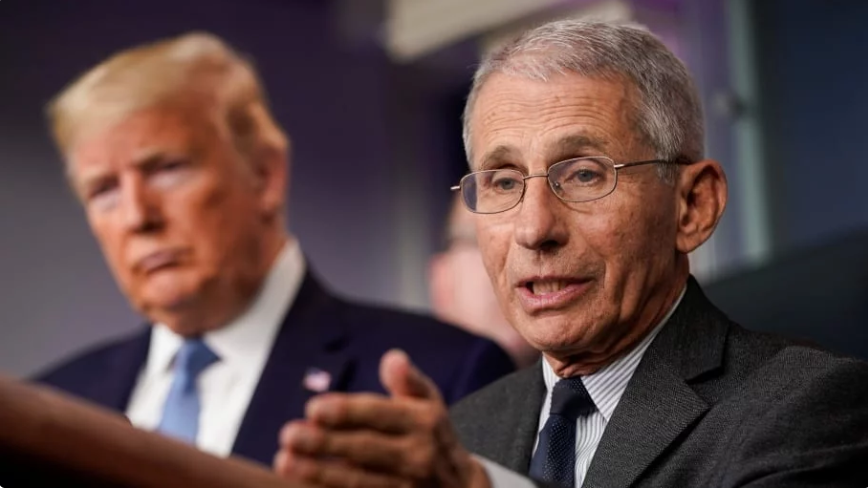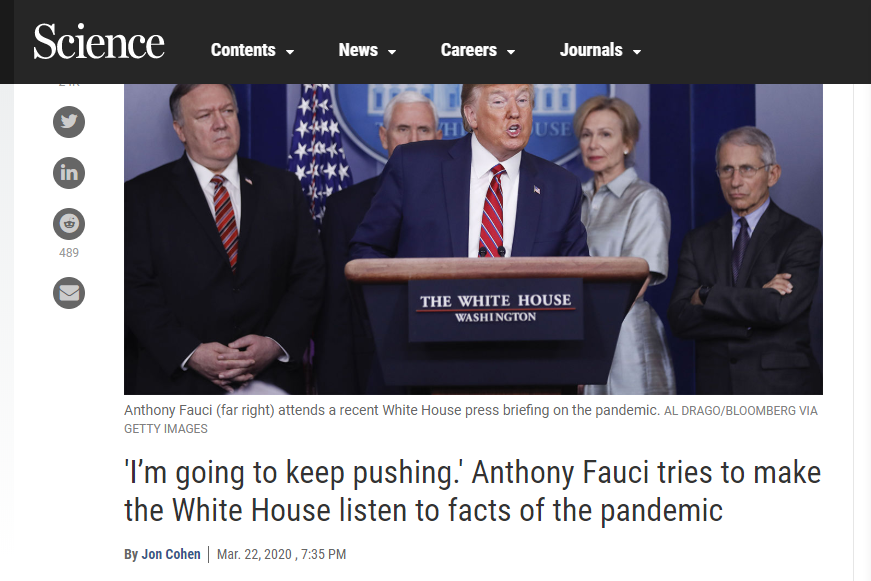
Anthony Fauci (R), director of the U.S. National Institute of Allergy and Infectious Diseases with U.S. President Donald Trump at a press conference of the White House. /Reuters
Anthony Fauci (R), director of the U.S. National Institute of Allergy and Infectious Diseases with U.S. President Donald Trump at a press conference of the White House. /Reuters
Dr. Anthony Fauci, the U.S. government's top infectious disease expert, said U.S. President Donald Trump's accusation that China could have revealed the discovery of the new coronavirus three to four months earlier doesn't comport with facts.
"After he made that statement, I told the appropriate people, it doesn't comport, because two or three months earlier would have been September," he was quoted as saying during a phone interview with Science magazine that was published online on Sunday.
The novel coronavirus was discovered and reported in China in December and China shared the genetic sequence of the virus with the World Health Organization by January 10.
"The next time they sit down with him and talk about what he's going to say, they will say, by the way, Mr. President, be careful about this and don't say that. But I can't jump in front of the microphone and push him down. OK, he said it. Let's try and get it corrected for the next time," he said.

Screenshot from website of Science.
Screenshot from website of Science.
Fauci, director of the National Institute of Allergy and Infectious Diseases since 1984, is considered the scientific voice on how to respond to COVID-19 and a representative of truth and facts.
He has been one of the most visible health officials in the U.S. federal government's response to COVID-19, due to his frequent appearances by the side of President Trump on the now-regular White House press briefings on the pandemic.
Fauci said he's going to keep pushing and try to keep President Trump's statements about the pandemic fact-based.
"You've been in press conferences where things are happening that you disagree with, is that fair to say?" asked the interviewer.
"Well, I don't disagree in the substance. It is expressed in a way that I would not express it, because it could lead to some misunderstanding about what the facts are about a given subject," he answered.
He also said he had never and would never call the virus a "China virus" or a "Chinese virus."
Asked about whether the U.S. should consider some creative measures adopted by other countries to contain the epidemic, like using thermometers at supermarkets before letting people as in China, Dr. Fauci replied of course, and he would bring it up at the next task force meeting and see whether there's some sort of a logistical, bureaucratic reason why it can't be done.
The U.S. has imposed a travel ban on visitors from China since February 2. Asked why it is still in place when there are few cases in China other than imported cases, he said that he got two text messages, one from a governor and one from the White House, and had to get off.